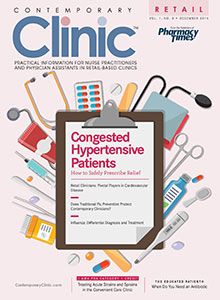Guidelines Announced for Cardiac Arrest During Pregnancy
The American Heart Association has published its first comprehensive scientific statement on the treatment and management of cardiac arrest in pregnant women.
The American Heart Association (AHA) has published its first comprehensive scientific statement on the treatment and management of cardiac arrest in pregnant women. Published in the journalCirculation, it provides early warning signs and treatment recommendations for health care professionals.
The statement also includes recommendations for witnesses of the arrest. The first recommendation is to call 911, making sure to tell the dispatcher that the patient is pregnant. Cardiopulmonary resuscitation (CPR) may then be initiated. If CPR is successful, the patient should be placed on her left side to improve blood flow to the heart and fetus.
According toTintinalli’s Emergency Medicine Guide, 1 in 30,000 pregnancies will be compromised by cardiac arrest. Common causes of cardiac arrest in the United States include bleeding, heart failure, amniotic fluid embolism, and sepsis.
In a follow-up article on the AHA news blog, Farida Mary Jeejeebhoy, MD, a cardiologist at the University of Toronto and William Osler Health System in Brampton, Canada, speculated that cardiac arrest in the pregnant population is on the rise due to more women conceiving at an older age. Many of these women also have diabetes, high cholesterol, or chronic conditions such as kidney, lung, or seizure disorders.
Dr. Jeejeebhoy hinted that missed treatment for these conditions may be where the problem lies. Patients who have chronic diseases should receive care from specialists in the field of high-risk pregnancies.
This statement marks a milestone for the care of cardiac arrest in pregnant women and could improve mortality in this high-risk scenario.

